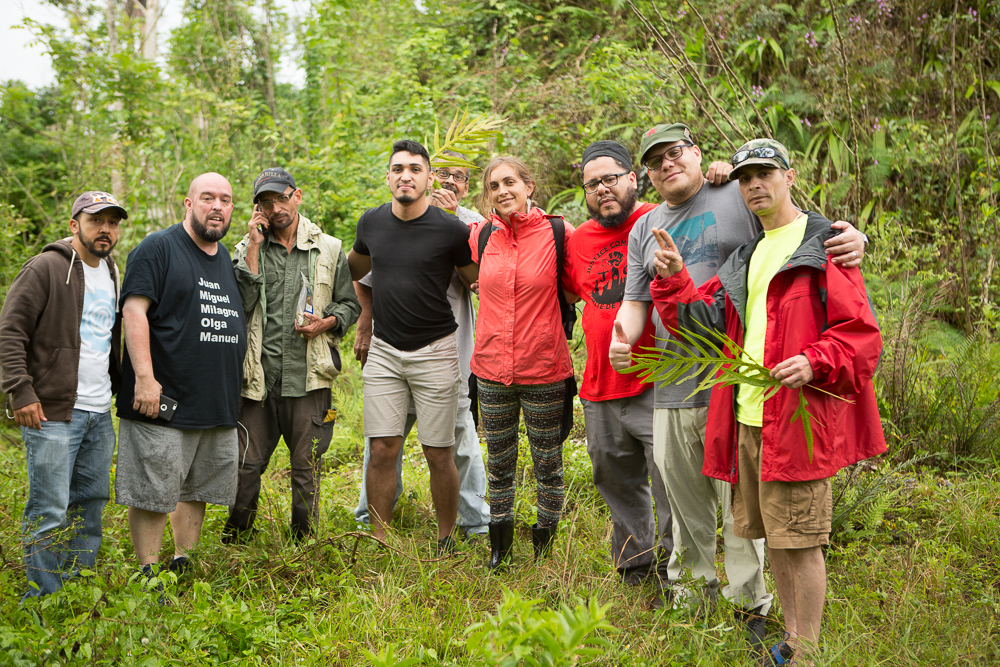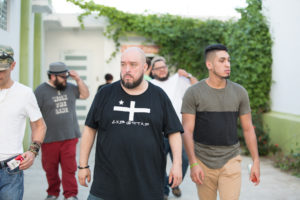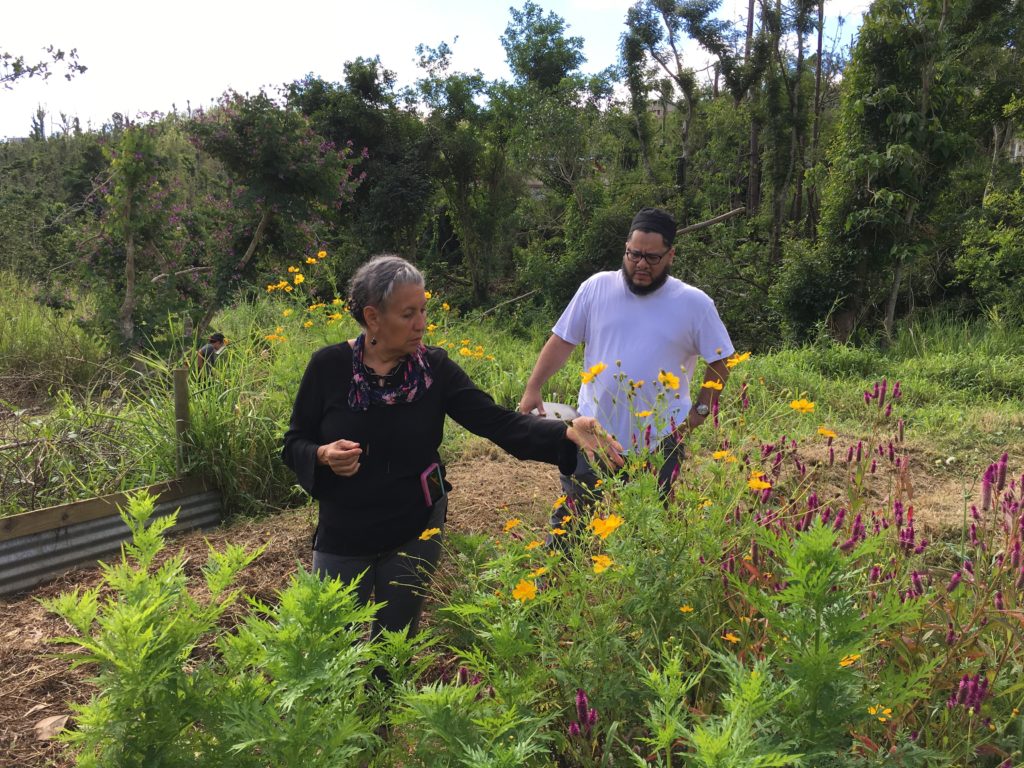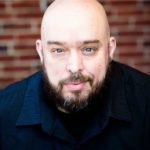George Torres, known by many of us as “Jibaro” is the founder of Sofrito Media Group, a wandering digital nomad with 20 years of experience and a passion for tech, travel, speaking, teaching & community building for the Latino / LatinX audience. If you are part of the Latino scene in New York, must definitely you’ve crossed paths with George at an event. I met him back in 2013 when I was curating Canvas of Words. Alongside his partner Papo Swiggity they welcomed me to the scene and opened the doors to Capicu and Sofrito for all my endeavors, the doors have remained open. Together we’ve built and worked on many projects. Most recently, I encouraged George to tell his story at a fundraiser event to help the victims of Hurricane Maria curated by Queenscapes in which my organization was invited to collaborate together with FiveBoro Project. Knowing George I couldn’t think of anyone else to share the orgullo of being Boricua and the importance of community especially after the devastation that has taken place on the island. George immediately accepted the invitation and shared with the audience a heartfelt story about his love for Puerto Rico which is deeply rooted in his grandmother’s love and the importance of community building as part of the relief efforts to rebuild Puerto Rico.
At the end of the event, he promised an interview upon his return from the island to share his experience with our audience and all the ways we can help. As a man of his word, here it is…
WA: Tell us about yourself and your background?
GT: My name is George Torres and I am a Brooklyn born Nuyorican community builder who presents, promotes, and preserves Latino culture via my website http://www.sofritoforyoursoul.com and other platforms.
I was raised between Brooklyn and Bayamon and before I turned 15, I struggled with my identity. I was a white-passing Boricua that was raised in a black community. I looked different than my neighbors in Howard Houses (Brownsville) and although my family was really “Boricua”, I did not carry that with me when I walked the streets. Although I had been immersed in Latino culture I was completely oblivious to our place in society and how we were seen outside of the safety of our community.
I was always accepted, but I longed to find a place I truly belonged. When I moved to Puerto Rico, I remember thinking I was finally going “home” to my people. When I arrived on my first day of school, I was saddened by the fact that I was still an outsider. I was often called Americuchi, Yanqui, and Gringito mostly because I did not speak Spanish.
It was not mean-spirited, but it hurt just the same. I was different and they took every opportunity to remind me that I was from “afuera” or outside the island.
I was so proud to be Puerto Rican but Puerto Rico did not claim me.
My cultural awakening was abrupt and violent. In 1986 a friend and I became victims of a hate crime due to our being Latino. The incident was dubbed the “Latino Howard Beach Attack” because of the similarities between what happened to us and the now infamous Howard Beach Bias Attack that resulted in Michael Griffith’s death.
Now, I had never looked at people from a racial or cultural perspective. The fact that someone could hate me because I was different than they were was a shock to me. During the process of trying to bring my attackers to justice, I met social justice advocates like Reverend Al Sharpton and the late Richie Perez. Richie, a former member of the Young Lords Party who was an organizer of the National Congress of Puerto Rican Rights movement, would not only help us seek justice but would also contribute to shaping my awareness of what it meant to be Puerto Rican in the United States; He opened my eyes to the concept of self-determination.
This experience and Richie’s mentorship was pivotal in what shapes the work I do today.
WA: When did you launch Sofrito for Your Soul? What is its mission?
GT: In 1997 I went through a time of change and restructure. Having divorced after eight years of marriage and two children, I decided to leave everything behind, including a promising career as a chef, to go back to school and pursue a college degree. It was at the State University of New York at Old Westbury that I reconnected with my calling to build community by joining and leading two organizations on campus, Alianza Latina and Phi Iota Alpha Fraternity, Incorporated. During my time in college, I developed interests that were instrumental in creating who I am today. Organizing activities with MUEVETE, a youth conference based in NYC, led to my reconnecting with Richie Perez, who would continue to encourage and mentor me until his untimely passing in 2004. It is in his honor that I identify myself as an Urban Jibaro, a term he often used to describe me.
The perfect storm of Latino history, web design, event planning, community building and spoken word gave birth to my first website on a Geocities platform that would eventually become Sofrito For Your Soul, a website that stands today as a living tribute to my grandmother’s community building ritual of making Sofrito. Originally conceived as a personal journal, pre-dating blogs, it was meant to document my college experience and my affinity for poetry. Sofrito For Your Soul eventually grew into a website that highlighted our culture beyond campus and eventually gained an international audience.
In the last 20 years, Sofrito for Your Soul has allowed me to partner with leading organizations within the Latino community to create, organize, and curate, helping people reconnect with their culture by moving outside of the virtual world. My most rewarding partnership has been the collaboration with Juan PaPo Swiggity Santiago, with whom in 2007, after 8 years of sharing ideas, CAPICU! Cultural Showcase was created. We combined our community building abilities to produce diverse poetry and performing arts events in New York City using the philosophies of the most progressive intellectual and artistic movements of the last century (i.e. The Harlem Renaissance, the Beat Poets & most notably the Nuyorican Movement). Our collective mission is to move beyond event planning and create a self-sustaining institution that will cultivate media savvy amongst successful business people in the arts’ circle. CAPICU! Cultural Showcase also produces RADIO CAPICU, the first live Latino talk radio show on the Internet where important topics relevant to the Latino community are discussed and debated.
Today I am currently working on projects that include curriculum building, civic engagement and building infrastructure in Puerto Rico that consists of food, energy and water sovereignty.
WA: What inspires your community advocacy?
GT: Mama…
My late grandmother, Gloria del Rio, was my role model. She was the person who raised me and set the foundation for who I would become. Mama, as she was known, was the matriarch of our East New York and Brownsville neighborhoods. She had emigrated from Puerto Rico as a single mom, educated herself and dedicated her life to political action community advocacy for Latinos, particularly the elderly. Having been witness to her amazing ability to build the community I realized that most of her interactions began with a home-cooked meal, many times for the less fortunate. Like many Latina women, she was the master of her cocina. One day I marveled at the exquisite taste of her food and asked how she learned to cook so well to which she simply replied, “Everything I cook, I cook with love.
That is all you need, Papi. Love and sofrito.”
I continue to be inspired today by the dynamic between the Puerto Rican diaspora and those on the island rooted in the humanitarian response to the devastation that hurricanes Irma and Maria had on our Boriken. This newfound unity gives me hope.
WA: How do you define Community?
GT: Community is people that find themselves at the same time, place and circumstance. As a result, they become collaborative naturally. A community is a shared belief in a common cause.
WA: You recently visited Puerto Rico and have been very active in relief efforts, share with our readers your experience.
GT: Before Hurricane Maria hit, the diaspora had already sprung into action creating events to raise money and collect items in response to Hurricane Irma. It was a blessing that we had a head start.
My first days following the storm were consumed by helping organizations like Puerto Rican Family Institute. I leveraged relationships to provide logistical support to smaller organizations with large amounts of aid, connect with organizations that had the planes and boats to get it to the island. In dealing with the trauma the crisis had on me personally, I took to Facebook Live to talk about self-care and raised awareness about the mental health clinics the PRFI had to offer.
This inspired me to seek out others to see if we can create a brigade of mental health professionals that can go to the island and offer crisis counseling. In addition, my model was to include a component that also allowed for people to heal spiritually. This project is a major undertaking… I am in the process of connecting with my partners to discuss a different model now that I have had the opportunity to be on the island.
With the healing project moving so slow, I decided to join the Nuestro Ideal Brigade to go to impacted communities in Puerto Rico, assist in feeding people in the community and connect with community leaders to really understand what they need on the island. My trip was self-funded and partially sponsored by two personal friends.
During my time there, I connected with Boricua activist and musician Tato Torres who really gave me a debriefing about the actual state of Puerto Rico’s most vulnerable communities. Our conversation ranged from resources (food, water, and energy) sovereignty, to the environmental crisis the humanitarian aid is causing in reference to waste and the dynamics of Voluntourism. I bought these learnings back to people preparing to launch brigades so that they can be mindful. Tato was also instrumental in connecting us with thought leaders doing this work way before the storms hit.
We also got news on our trip that Nuestro Ideal will be the recipient of 15 acres of land to build a collaborative farm that would help the community regain (healthy) sustainable food security in the long term. The balance of our trip was spent connecting with potential partners like Dalma Cartagena from the Botijas school that teaches 10-13-year-olds how to cultivate using a real 1-acre farm outside the school that actually produces some of the food the kitchen uses for the school lunch program,
When this trip concluded, I committed to joining Nuestro Ideal officially to assist with building this agricultural project on the island.
I boarded the plane in SJU knowing that although things are bad, people on the island are not waiting for anyone to rescue them. The people have become their own heroes.
WA: How can we help?
GT: Spreading the word about Nuestro Ideal and other great grassroots organizations that are giving the people 100% of all money raised in services, donations, and grants. We can also use resources, so if you think you can help us do more with a resource you have access to…. Connect with me ASAP at PuertoRico@SofritoMediaGroup.com
Donations can be made to our project by visiting www.NuestroIdeal.org
WA: What does Puerto Rico need more of now?
GT: LOVE…
And also the people in Puerto Rico need an audience of people in the diaspora that are willing to listen and provide their expertise in a way that is conducive to long-term prosperity.
WA: What does Puerto Rico need less of?
GT: They do not need bottled water, they need solar powered pumps. They do not need food, they need seeds and land so that they can grow their own. They do not need people who say they are volunteering but are in vacation mode taking selfies… there is real work to be done.
WA: Back in December at the fundraiser event curated by Queenscapes you shared with me one of your goals as far as the mental health issues that are affecting the island as a result of the trauma experienced by Hurricane Maria. Tell us more about it and how can we help you.
GT: My original concept was to create healing centers that provided both clinical and spiritual services that would allow people impacted to heal. After visiting the island’s most vulnerable communities, I have shifted in thought on how that can be achieved. I am currently exploring a technology model that can be scaled to reach more people but I must really reconnect with my original partners to decide which way we are moving forward. I will have to reach out to you once we are able to really know what help is needed to make it happen.
I will say that there are amazing efforts here in NYC providing healing services to first responders; aid volunteers and environmental refugees displaced y the storm. I will be promoting some of these on http://www.sofritoforyoursoul.com in the coming weeks.
WA: As a social media influencer, tell us what are the tools we all can use to push the relief efforts and help our brothers and sisters in Puerto Rico?
GT: The social web has facilitated success across the board during this crisis. Millions have been raised; many organizations that normally wouldn’t have collaborated and resources have been shared inspiring action from even the smallest community groups to take big action. Everybody is having some kind of impact in their own way and we need to foster that.
One of the gaps I identified is that there is not one single resource that has centralized info on all ongoing efforts, so I a teaming up with Miguel Sanchez from Mass Ideation, a Bronx based Latino business to create RethinkPuertoRico.com to fill that need. Our intention is to be a hub for all efforts and foster more collaboration by building bridges between organizations rebuilding Puerto Rico.
WA: Define Puerto Rico in three words
GT: Estamos De Pie (We Are Standing)
WA: What’s next for George?
GT: Life is so fluid right now, so I cannot answer that with certainty. I plan on continuing my work on all the projects I just shared but in addition, I want to continue to explore my creative side. That includes more writing and even acting.
If you read my blog post in which I shared “My Three Words For 2018” you would know that one of my words is LEGACY.
Legacy is so important to me now. My grandmother lost her battle to Lung Cancer just as I was starting to write my book #SocialSofrito to share my journey, her lessons as well as hopefully inspire social good thru social media by sharing my philosophy on community and storytelling.
The book is really critical in the Legacy piece so my goal is to finish it and launch a major speaking tour to support it in 2019. To make this happen, I may have to shift life around. This means I may actually move back to Puerto Rico before the year ends to reduce the financial pressure I am feeling now that I am splitting my time with work and my philanthropic initiatives.
Interestingly enough, this was always the goal before the storm, for me to be a full-time digital nomad with my home base in Puerto Rico.
It might finally come true.
Thank you for lending me your platform to further my work.
*******************************************************************************************************************************************
Facebook: George “Urban Jibaro” Torres
Twitter: @urbanjibaro
Instagram: @urbanjibaro
Website: http://www.sofritoforyoursoul.com
 Wendy Angulo Productions
Wendy Angulo Productions








Excellent article! A wonderful way to learn more about George and his unselfish goals.